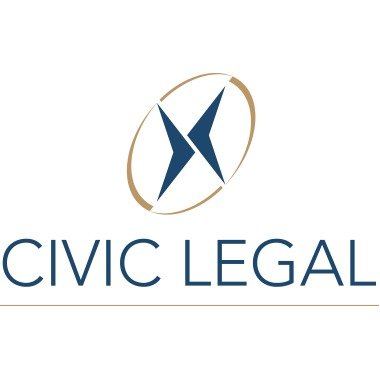Best Landlord & Tenant Lawyers in Perth
Share your needs with us, get contacted by law firms.
Free. Takes 2 min.
Free Guide to Hiring a Real Estate Lawyer
List of the best lawyers in Perth, Australia
About Landlord & Tenant Law in Perth, Australia
Landlord and tenant law in Perth, Australia, primarily covers the legal aspects of rental agreements between property owners (landlords) and renters (tenants). It is designed to protect the rights of both parties by offering a framework for smooth transactions and conflict resolution. This body of law covers issues like lease agreements, rental bonds, repair obligations, eviction processes, and dispute resolutions. The laws aim to balance the responsibilities and rights of landlords to manage their property with the rights of tenants to enjoy their occupation in peace.
Why You May Need a Lawyer
There are several situations where individuals may require legal assistance in landlord and tenant matters:
- Lease Disputes: Disagreement over lease terms, such as notice periods or renewals, may require legal interpretation or intervention.
- Evictions: If a landlord is looking to evict a tenant or a tenant needs to challenge an eviction, legal guidance can ensure procedures are properly followed.
- Non-Payment of Rent: Landlords may seek legal recourse if rent payments are not made as per the lease agreement.
- Maintenance and Repairs: Disputes over maintenance responsibilities and repair obligations can often benefit from legal mediation.
- Rental Bond Disputes: Issues might arise over the return or use of a rental bond, which may require legal advice to resolve.
- Unlawful Entry: Tenants might seek legal protection against landlords entering the property without proper notice or consent.
Local Laws Overview
Perth's landlord and tenant relations are primarily governed by the Residential Tenancies Act 1987 (WA). This legislation sets out the rights and responsibilities of landlords and tenants in Western Australia. Key aspects include:
- Rental Agreements: Must be in writing and include specific information, such as rent amount and payment frequency.
- Rental Bonds: Typically equivalent to four weeks' rent, they must be lodged with the Bond Administrator.
- Repairs: Landlords are required to maintain the property in a reasonable state of repair, considering its age and the rent paid.
- Entry Rights: Landlords need to provide adequate notice-generally, 7-14 days for inspections, depending on the situation, unless it's an emergency.
- Rent Increases: The frequency and notice period for rent increases are regulated to prevent exploitation.
- End of Tenancy: Specific procedures and notice periods apply when either party wants to terminate the tenancy.
Frequently Asked Questions
What is a tenancy agreement?
A tenancy agreement, also known as a rental agreement, is a contract between a landlord and tenant that outlines the terms of rental arrangements. It specifies details like the rent amount, payment due dates, and responsibilities for maintenance and repair.
How much notice is required before a rent increase?
Landlords must provide tenants with at least 60 days’ written notice before increasing the rent, unless a different period is agreed upon in the lease agreement.
What can I do if my landlord refuses to make necessary repairs?
If a landlord fails to carry out necessary repairs, tenants can issue a Notice to Remedy Breach. If unresolved, they can seek resolution through the Magistrates Court or the Department of Mines, Industry Regulation and Safety (DMIRS) dispute resolution service.
Can a landlord enter my property without notice?
In non-emergency situations, landlords must provide written notice before entering the property: between 7 and 14 days for an inspection or as otherwise stated in the rent agreement, unless immediate access is needed for urgent repairs.
What happens if I fall behind on rent payments?
If tenants fall behind on payments, landlords can issue a Breach Notice. If unresolved, eviction proceedings might be initiated, but tenants are encouraged to engage in dialogue with landlords or seek legal advice to avoid eviction.
How can I retrieve my rental bond after vacating the property?
To retrieve a rental bond, both tenant and landlord must sign a Joint Application for Disposal, which is then lodged with the Bond Administrator. If disputes arise, resolution can be sought through the Magistrates Court.
What do I do if I have a dispute with my landlord or tenant?
Initial steps include discussing the issue with the landlord or tenant directly. If unresolved, consider mediation through DMIRS or legal intervention through the Magistrates Court.
Is subletting allowed in Perth?
Subletting is generally permissible, but tenants must obtain written consent from the landlord. Subletting without approval can lead to termination of the lease agreement.
What is an urgent repair, and what are my obligations?
Urgent repairs typically include those necessary to avoid further damage or safety hazards like fixing broken water systems or addressing electrical faults. Landlords are generally required to address urgent repairs immediately.
Can my landlord evict me without a reason?
No, in Perth, landlords must have valid grounds to evict a tenant and must follow the legal process, including providing adequate notice, as stipulated in the Residential Tenancies Act.
Additional Resources
- Department of Mines, Industry Regulation and Safety (DMIRS): Offers guidance on tenancy laws and dispute resolution services.
- Tenancy WA: Provides free advice and resources for tenants on their rights and responsibilities.
- Consumer Protection WA: Offers comprehensive resources and legal guidance regarding residential tenancy issues.
Next Steps
If you find yourself needing legal assistance in landlord and tenant matters, consider taking the following steps:
- Document Everything: Keep detailed records of communications, agreements, and disputes.
- Seek Initial Advice: Contact Tenancy WA or Consumer Protection WA for preliminary advice.
- Consult a Lawyer: For complex issues or unresolved disputes, consider consulting a lawyer specializing in tenancy law.
- Mediation Services: Explore mediation through DMIRS for less adversarial dispute resolution.
Remember, understanding your rights and responsibilities can aid in resolving issues amicably and avoiding legal disputes. Always consult a professional for tailored legal advice specific to your circumstances.
Lawzana helps you find the best lawyers and law firms in Perth through a curated and pre-screened list of qualified legal professionals. Our platform offers rankings and detailed profiles of attorneys and law firms, allowing you to compare based on practice areas, including Landlord & Tenant, experience, and client feedback.
Each profile includes a description of the firm's areas of practice, client reviews, team members and partners, year of establishment, spoken languages, office locations, contact information, social media presence, and any published articles or resources. Most firms on our platform speak English and are experienced in both local and international legal matters.
Get a quote from top-rated law firms in Perth, Australia — quickly, securely, and without unnecessary hassle.
Disclaimer:
The information provided on this page is for general informational purposes only and does not constitute legal advice. While we strive to ensure the accuracy and relevance of the content, legal information may change over time, and interpretations of the law can vary. You should always consult with a qualified legal professional for advice specific to your situation.
We disclaim all liability for actions taken or not taken based on the content of this page. If you believe any information is incorrect or outdated, please contact us, and we will review and update it where appropriate.
















